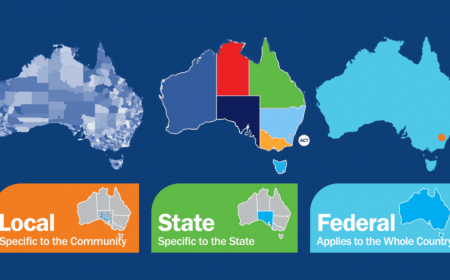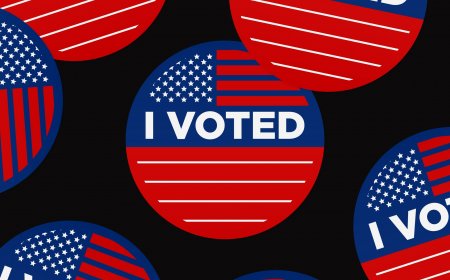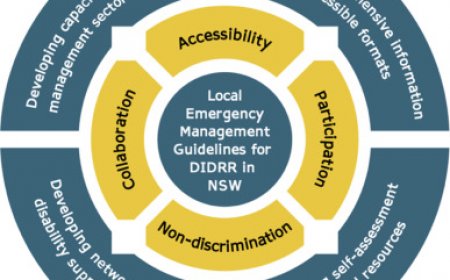US Hotel Reservations: How to Find the Best Deals
Discover expert tips and strategies to find the best US hotel reservations. Learn how to save money, avoid hidden fees, and secure comfortable accommodations for your next trip.
Traveling across the United States offers endless opportunities to explore diverse landscapes, vibrant cities, and rich cultural experiences. However, securing comfortable accommodations at reasonable prices can significantly impact your overall travel budget. With countless hotels, motels, boutique inns, and vacation rentals available, finding the best deals requires a strategic approach. In this comprehensive guide, we will walk you through proven methods and insider tips to help you secure the most competitive rates for your US hotel reservations. Whether you’re planning a weekend getaway or an extended road trip, these strategies will ensure you maximize savings without compromising quality.
Understanding the Hotel Booking Landscape
Types of Accommodations
Before diving into booking strategies, it’s essential to understand the variety of accommodations available in the US. These include:
- Luxury Hotels: High-end properties offering premium amenities such as spas, fine dining, and concierge services. Examples include The Ritz-Carlton, Four Seasons, and St. Regis.
- Mid-Range Hotels: Comfortable options with standard amenities like free Wi-Fi, breakfast, and fitness centers. Brands like Courtyard by Marriott, Holiday Inn Express, and Hampton Inn fall under this category.
- Budget Motels: Affordable choices ideal for travelers seeking basic lodging. Chains like Super 8, Motel 6, and Red Roof Inn cater to cost-conscious guests.
- Boutique Inns: Unique, independently owned establishments emphasizing personalized service and local charm. Think of places like The Greenwich Hotel in New York City or Post Ranch Inn in Big Sur.
- Vacation Rentals: Platforms like Airbnb and Vrbo provide private homes or apartments for short-term stays, often appealing to families or groups traveling together.
Each type caters to different needs and budgets, so identifying your priorities—whether cost, location, or amenities—is crucial before starting your search.
Factors Influencing Hotel Prices
Hotel rates fluctuate based on several factors, including:
- Seasonality: Peak tourist seasons (e.g., summer, holidays) often result in higher prices. For example, hotels in Miami Beach during spring break or Aspen during ski season command premium rates.
- Location: Urban areas and popular tourist destinations tend to have pricier accommodations. Manhattan hotels are notoriously expensive compared to those in Queens or Brooklyn.
- Demand: Major events, conferences, or festivals can drive up room rates. Cities hosting conventions like CES in Las Vegas or SXSW in Austin see significant price hikes during these periods.
- Booking Timing: Last-minute bookings may offer discounts but also carry risks of limited availability. Conversely, booking too early might lock you into a rate that later drops due to decreased demand.
Understanding these dynamics allows you to time your reservations strategically and avoid overpaying.
Step-by-Step Guide to Finding the Best Deals
1. Start Early and Be Flexible
One of the golden rules of hotel booking is to start your search early. Booking months in advance gives you access to better rates and a wider selection of rooms. Additionally, flexibility with your travel dates can lead to significant savings. For instance:
- Avoid weekends if possible, as weekday rates are typically lower. Business travelers dominate weekday occupancy, leaving weekends less crowded and cheaper.
- Consider traveling during shoulder seasons (spring or fall), when demand is lower but weather remains pleasant. For example, visiting national parks in September instead of July avoids crowds and high prices.
2. Use Price Comparison Websites
Price comparison tools aggregate listings from multiple booking platforms, allowing you to compare rates side by side. Popular websites include:
- Trivago: Aggregates data from Expedia, Booking.com, and other major platforms.
- Kayak: Offers filters for amenities, star ratings, and proximity to attractions.
- HotelsCombined: Displays real-time pricing comparisons across dozens of sites.
- Google Hotels: Integrates seamlessly with Google Maps for easy navigation.
These platforms not only display prices but also highlight user reviews, star ratings, and proximity to key attractions, helping you make informed decisions.
3. Leverage Loyalty Programs
Many hotel chains operate loyalty programs that reward frequent guests with perks such as discounted rates, free nights, and upgrades. Examples include:
- Marriott Bonvoy: Earn points redeemable for free nights and enjoy elite status benefits like lounge access.
- Hilton Honors: Offers “Points & Money” options for partial redemptions and exclusive member rates.
- IHG One Rewards: Provides bonus point promotions and late checkout privileges.
- Hyatt World of Hyatt: Known for generous award charts and partnership discounts.
Joining these programs is free and provides additional benefits like exclusive member rates, late checkouts, and complimentary breakfasts. Even occasional travelers can accumulate points over time for future redemptions.
4. Book Directly Through Hotel Websites
While third-party sites are convenient, booking directly through a hotel’s official website often yields better deals. Many hotels offer “best rate guarantees,” ensuring you won’t find cheaper prices elsewhere. Additionally, direct bookings may come with added perks such as free parking, welcome drinks, or flexible cancellation policies. For example:
- Hilton’s Price Match Guarantee: If you find a lower rate online, Hilton will match it and give you an additional 25% discount.
- Marriott’s Member Rates: Exclusive discounts for Bonvoy members who book directly.
5. Utilize Discount Codes and Promo Offers
Before finalizing your reservation, search for discount codes and promotional offers. Websites like RetailMeNot and Honey frequently list valid coupons for major hotel chains. Furthermore, signing up for newsletters or following hotels on social media can grant access to flash sales and limited-time promotions. For example:
- AAA Discounts: Members of the American Automobile Association receive up to 10% off select hotels.
- Military Discounts: Active duty personnel, veterans, and their families often qualify for reduced rates.
6. Explore Alternative Booking Platforms
Beyond traditional hotel booking sites, consider alternative platforms that specialize in discounted inventory:
- Hotwire: Known for its “Hot Rate” deals, where users book mystery hotels at reduced prices. While you won’t know the exact property until after booking, this option suits budget-conscious travelers.
- Priceline: Allows users to bid on unsold rooms through its “Name Your Own Price” feature. This tool works best when combined with research on average nightly rates.
- HotelTonight: Focuses on last-minute bookings with steep discounts. Ideal for spontaneous trips or business travelers needing urgent accommodations.
These platforms cater to bargain hunters willing to embrace some uncertainty in exchange for savings.
7. Negotiate Rates Over the Phone
Believe it or not, calling a hotel directly can sometimes yield better deals than booking online. Mention any competing offers you’ve found and politely ask if they can match or beat the price. During low occupancy periods, hotels may be more inclined to negotiate to fill empty rooms. For example:
- Call the front desk manager and inquire about unpublished rates.
- Ask about corporate or government discounts even if you don’t qualify officially; some managers may apply them discretionarily.
8. Combine Stays with Travel Packages
Booking flights, hotels, and car rentals together as part of a travel package can save money compared to purchasing each component separately. Websites like Expedia, Orbitz, and Travelocity often advertise bundled discounts. Always compare package prices against individual bookings to confirm savings. For example:
- A flight + hotel bundle might save $100-$200 versus booking components independently.
- Look for packages that include meals or attraction tickets for added value.
Maximizing Savings with Strategic Planning
Sign Up for Alerts
Set up price alerts on booking platforms to monitor fluctuations in hotel rates. Tools like Google Flights and Skyscanner allow you to track both airfare and accommodation costs simultaneously, ensuring you never miss a deal. For example:
- Set a target price and receive notifications when rates drop below your threshold.
- Monitor trends over weeks to identify patterns and optimal booking windows.
Consider Off-the-Beaten-Path Locations
Staying slightly outside major city centers or tourist hubs can drastically reduce lodging expenses. For example:
- Opting for a hotel in Queens instead of Manhattan or in Anaheim rather than downtown Los Angeles can save hundreds of dollars while still providing easy access to attractions via public transportation.
- Research neighborhoods known for affordability and safety, such as Brooklyn’s Williamsburg or San Francisco’s Mission District.
Look for Free Cancellation Policies
Life is unpredictable, and plans can change unexpectedly. To safeguard your investment, prioritize hotels offering free cancellation policies. This flexibility ensures you won’t lose money if your itinerary shifts. For example:
- Most major chains allow cancellations up to 24-48 hours before check-in without penalty.
- Third-party sites like Booking.com often highlight properties with lenient cancellation terms.
Take Advantage of Credit Card Benefits
Certain credit cards provide valuable travel-related perks, such as statement credits for hotel bookings, elite status with partner hotel chains, or annual free night certificates. Review your cardholder agreement to determine how you can leverage these benefits during your stay. For example:
- Chase Sapphire Preferred: Earn 2x points on travel purchases and redeem them for statement credits toward hotel stays.
- American Express Platinum: Includes complimentary Gold status with Hilton Honors and Marriott Bonvoy, plus a $200 annual airline fee credit.
Hidden Gems for Budget-Conscious Travelers
Stay at Boutique Inns
Independent boutique inns often charge less than chain hotels while delivering unique, personalized experiences. Look for locally owned properties listed on platforms like BedandBreakfast.com or iLoveInns.com. For example:
- The Inn at Little Washington in Virginia combines luxury with small-town charm.
- The Saguaro Scottsdale in Arizona features colorful decor inspired by desert flora.
Opt for Extended Stay Hotels
If you’re planning a long-term visit, extended stay hotels like Residence Inn by Marriott or Homewood Suites by Hilton offer spacious suites equipped with kitchens. Weekly or monthly rates are typically more economical than nightly charges. For example:
- Cook meals in your suite to save on dining expenses.
- Enjoy amenities like laundry facilities and grocery delivery services.
Try Hostels and Guesthouses
Hostels aren’t just for backpackers; many modern hostels in the US cater to all age groups and provide private rooms alongside shared dormitories. Similarly, guesthouses operated by homeowners offer affordable, homey accommodations. For example:
- Generator Hostels in Miami and Chicago blend stylish design with budget-friendly rates.
- Guesthouses in rural areas often include homemade breakfasts and warm hospitality.
Avoiding Common Pitfalls
Read the Fine Print
Always review the terms and conditions associated with your booking. Pay attention to details such as taxes, resort fees, and deposit requirements, which can inflate the final cost. For example:
- Resort fees can add $20-$50 per night, covering amenities like Wi-Fi and gym access.
- Some hotels require non-refundable deposits, especially during peak seasons.
Beware of Scams
Stick to reputable booking platforms and verify the legitimacy of unfamiliar websites before entering payment information. Watch out for phishing emails claiming to offer unrealistically low rates. For example:
- Check for secure connections (https://) and verified trust badges on websites.
- Avoid wiring money or using prepaid debit cards for transactions.
Double-Check Your Reservation
After completing your booking, confirm the details immediately. Mistakes happen, and catching errors early prevents potential issues upon arrival. For example:
- Verify dates, room type, and special requests like smoking/non-smoking preferences.
- Save confirmation emails and screenshots as proof of your reservation.
Accessibility
Most major hotel chains comply with ADA (Americans with Disabilities Act) standards, ensuring accessible rooms and facilities for travelers with disabilities. When making reservations, specify any special needs to guarantee appropriate accommodations. For example:
- Request roll-in showers, grab bars, or hearing-impaired kits.
- Confirm accessibility features like elevators, ramps, and braille signage.
How To
To secure the best hotel deals, follow these steps:
- Research various booking platforms and compare prices.
- Sign up for loyalty programs and utilize membership benefits.
- Be flexible with travel dates and locations.
- Monitor price trends using alert tools.
- Contact hotels directly to inquire about unpublished discounts.
Conclusion
Finding the best US hotel reservations doesn’t have to be overwhelming. By employing smart strategies—such as leveraging loyalty programs, utilizing price comparison tools, and exploring alternative booking platforms—you can enjoy comfortable accommodations without breaking the bank. Remember to plan ahead, remain flexible, and always read the fine print to ensure a seamless booking experience.
10 FAQs
-
What is the best time to book a hotel in the US?
Aim to book 2-3 months in advance for domestic trips and 4-6 months for international travelers visiting the US. -
Are there discounts for military personnel or seniors?
Yes, many hotels offer discounted rates for military members, veterans, seniors, and government employees. -
Can I cancel my hotel reservation without penalties?
It depends on the hotel’s policy. Look for properties offering free cancellation within a specified timeframe. -
Is it cheaper to book hotels directly or through third-party sites?
Direct bookings often provide better rates and additional perks, though third-party sites occasionally offer exclusive deals. -
Do hotel prices increase closer to the check-in date?
Yes, last-minute bookings can be more expensive due to higher demand and limited availability. -
What should I look for in a loyalty program?
Prioritize programs offering free nights, flexible redemption options, and no blackout dates. -
Are vacation rentals cheaper than hotels?
Vacation rentals may be more cost-effective for families or groups, especially for longer stays. -
How do I find hidden hotel fees?
Check the total price breakdown during checkout, including taxes and resort fees. -
Which credit cards offer the best hotel perks?
Cards like Chase Sapphire Preferred, American Express Platinum, and Capital One Venture Rewards provide excellent travel benefits. -
Where can I find last-minute hotel deals?
Apps like HotelTonight and websites like Priceline specialize in discounted last-minute bookings.
What's Your Reaction?
 Like
0
Like
0
 Dislike
0
Dislike
0
 Love
0
Love
0
 Funny
0
Funny
0
 Angry
0
Angry
0
 Sad
0
Sad
0
 Wow
0
Wow
0











































